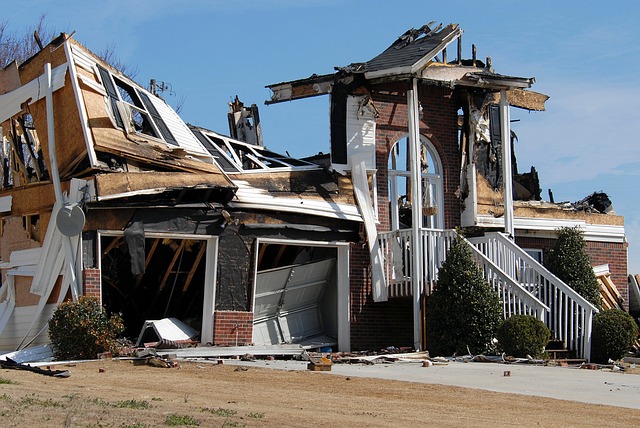After a fire, selling a house in Houston requires a nuanced approach due to the city's diverse neighborhoods and real estate markets. Assess damage, consider location, market trends, and engage experienced local agents for fair valuation. While extensive damage may reduce value, some buyers seek renovation opportunities. Key strategies include transparent communication, accurate appraisals, high-quality marketing, and staging to successfully sell a fire-damaged Houston property.
After a fire, property valuation in Houston can be complex. This comprehensive guide explores the intricacies of post-fire assessments, focusing on how fire damage impacts home values. We delve into the process of differentiating between repairable and non-repairable damages, offering valuable tips for selling a fire-damaged house in Houston. Understanding these aspects is crucial for navigating the real estate market after such a traumatic event.
- Understanding Post-Fire Property Valuation in Houston
- The Impact of Fire Damage on Home Value
- Assessing Repairable vs. Non-Repairable Damage
- Selling a Fire-Damaged House in Houston: Tips and Strategies
Understanding Post-Fire Property Valuation in Houston

After a fire, property valuation in Houston becomes a critical process for both homeowners and real estate professionals. Understanding the unique challenges and factors involved is essential when assessing a fire-damaged property in this dynamic city. Houston’s diverse neighborhoods and varying real estate markets require a nuanced approach to post-fire valuations.
When it comes to selling a fire-damaged house in Houston, several key considerations come into play. The extent of the damage, the location of the property, and current market trends can significantly impact the valuation process. Homeowners should be aware that insurers often conduct their own assessments, which may differ from independent appraisals. Engaging experienced local real estate agents who specialize in post-fire sales can provide valuable insights and ensure a fair and accurate valuation for selling fire-damaged properties in Houston’s competitive market.
The Impact of Fire Damage on Home Value

Fire damage can significantly impact a property’s value in Houston, affecting both its marketability and eventual sale price. The extent of the harm caused by a fire determines how much work is required to restore the home to its pre-loss condition. If a house has suffered minimal smoke and water damage, it may still be sellable with the right repairs and renovations. However, extensive fire damage that involves structural elements, like charred walls or melted floors, can reduce a property’s value substantially.
Selling a fire-damaged house in Houston requires transparency about its history to potential buyers. Appraisers will assess the cost of repairs needed, which is crucial for setting an accurate listing price. While some buyers may be deterred by fire damage, others seek opportunities to renovate and customize their dream homes, making it essential to consider the property’s potential after restoration rather than its current state.
Assessing Repairable vs. Non-Repairable Damage

After a fire, assessing the property’s damage is crucial for owners considering whether to sell their fire-damaged house in Houston. The initial step involves distinguishing between repairable and non-repairable losses. Repairable damage refers to issues like charred walls or smoke odours that can be remediated through typical renovation methods. These repairs often include structural fixes, painting, and replacing affected items like flooring or appliances. On the other hand, non-repairable damage may result from severe fire spread, leading to extensive interior destruction, foundation compromise, or structural instability. In such cases, demolition might be the only feasible option, making selling a more direct path for owners.
Houston’s real estate market plays a significant role in this decision. If repair costs are estimated to be lower than the property’s pre-fire value and there’s demand for similar homes in the area, it could be beneficial to sell after repairs. However, if damage is extensive and repair expenses exceed market value, selling a fire-damaged house might be the more practical choice. Homeowners should consult with professionals, including real estate agents and structural engineers, to determine the best course of action for their specific situation.
Selling a Fire-Damaged House in Houston: Tips and Strategies

Selling a fire-damaged house in Houston can be a challenging task, but with the right strategies, it’s possible to navigate this process smoothly. The first step is to assess the damage accurately. Engage the services of a professional property inspector who has experience dealing with fire damage to get an honest appraisal of the repairs needed. This will help you set a realistic asking price that accounts for both the value of the land and the cost of renovations, ensuring potential buyers understand the full picture.
Marketing your home effectively is key. Highlight that this is an opportunity to buy in a desirable location at potentially lower costs than comparable properties in good condition. Use high-quality photography and detailed listings to showcase both the house’s remaining strengths and the areas that require repairs. Consider staging the property to give buyers a sense of its potential post-renovation. Additionally, be transparent about any known issues to build trust with prospective purchasers.
Post-fire property valuation in Houston requires a nuanced understanding of how fire damage impacts home values. By assessing repairable versus non-repairable damage, homeowners can make informed decisions about selling their fire-damaged properties. Implementing effective strategies, such as professional appraisals and honest disclosures, is key to navigating the process successfully. For those looking to sell a fire-damaged house in Houston, being well-informed and proactive can lead to a smoother transition, ensuring a favorable outcome despite the challenges.






